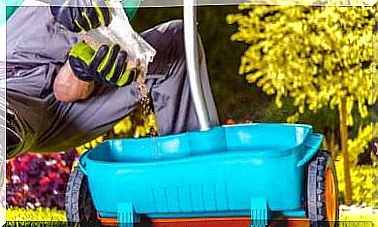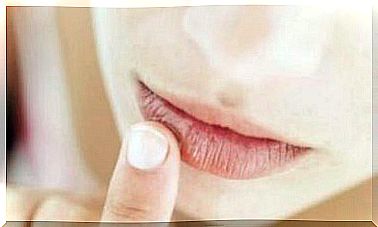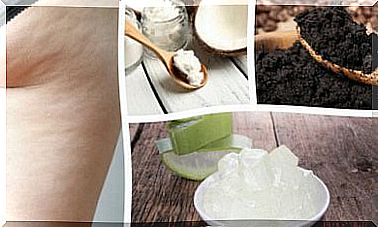Seasonal Allergy: Causes, Symptoms And Treatment
If you have a seasonal allergy, you should find out what exactly causes it. This may help you prevent them from occurring in the future.
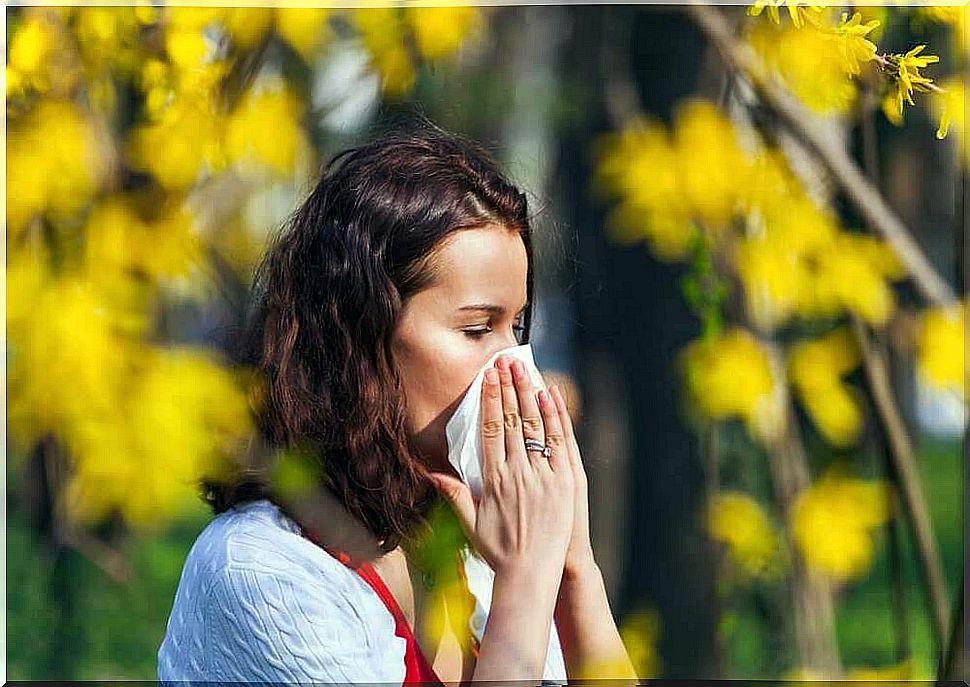
A seasonal allergy does not occur all year round, but only at certain times of the year. If you are affected, then you will surely know the inconvenience associated with it: constant sneezing, watery eyes, nasal congestion and a few packages of tissues in every pocket.
In extreme cases, it may also be appropriate that you wear a mask to protect yourself.
In today’s article we want to give you some of the causes and symptoms of these allergies.
If you suspect a seasonal allergy , your doctor can then confirm whether you actually have it. We will also introduce you to some natural remedies that you can use to alleviate your symptoms.
What exactly is a seasonal allergy?
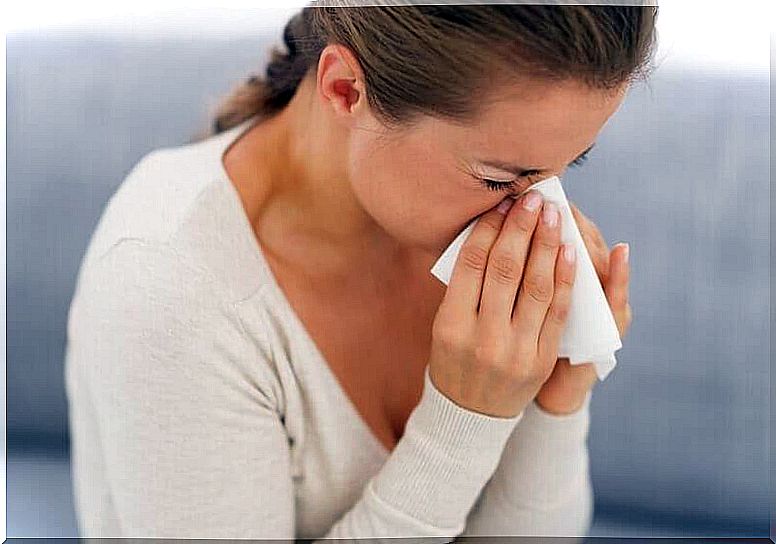
It is relatively easy to determine whether you suffer from a seasonal allergy, namely if the symptoms do not occur throughout the year, but only at a certain time in the year.
The classic symptoms of hay fever and allergic rhinitis are a stuffy, runny nose and sneezing.
Allergy triggers are certain trees, shrubs and other plants. Their pollen and spores fly around in the air and trigger an allergic reaction in susceptible people.
The intensity of the seasonal allergy and the associated symptoms can vary greatly from person to person.
Basically, your immune system sees these pollen and spores as intruders that need to be fought. For your protection, your body releases certain substances and these then cause allergic symptoms.
What are the symptoms?
A seasonal allergy can cause various symptoms, which, depending on the intensity of the allergy, can last for several days or longer:
- Very strong mucus production in the nose
- Stuffy nose
- Red or flushed eyes
- Sneeze
- to cough
- Watery or watery eyes
- itching
How to treat a seasonal allergy

At certain times of the year the pollen content in the air is extremely high. But even if you have a seasonal allergy, you don’t have to stay home during this time. Your doctor can work with you to create a treatment plan that is specially tailored to you.
It could include:
- Steroid nasal sprays to fight the inflammation in your nose. You use the spray once or twice a day.
- Antihistamines relieve itching. However, you should keep in mind that these drugs often cause fatigue. If you have to drive a car or are involved in dangerous work, then you should not use them beforehand.
- Nose congestion medication can temporarily improve this symptom and clear your nose again. However, you should only take these for a maximum of 2 to 3 days, otherwise they could cause harmful side effects. Also, you shouldn’t take them at all if you have high blood pressure.
- Your doctor may prescribe allergy shots if your symptoms are severe and other measures don’t work.
- You usually dissolve allergy pills under your tongue. They have a similar effect to the syringes, but you take the tablets every day as long as your seasonal allergy persists.
More tips if you have a seasonal allergy
Follow the tips below to better manage a seasonal allergy and prepare yourself as best as possible.
- Check the weather forecast every day, which also has a special pollen forecast that you can call up every day. This will help you be better prepared and plan your outdoor activities accordingly.
- It is also very helpful if you know exactly what type of pollen is causing your allergic reaction. Since there are different types of pollen, which all occur in the air at different times of the year, you can also prepare yourself better.
- Take a shower before you go to bed. This will remove any allergens that may have built up on your skin over the course of the day.
- Sleep with the window closed, so you can protect yourself from further pollen at night.
- You should wear a mask if you are in an environment where the concentration of pollen is particularly high . This will help protect your airways from excessive irritation from the allergens.
Natural remedies that can help

If you have a seasonal allergy, there are also numerous natural remedies that can provide you relief:
- Detox your body with a detox regimen.
- Avoid consuming foods that are particularly high in histamine, such as orange juice, coffee, dairy products, processed meats, and seafood.
- Support your gut with probiotic supplements.
- Take care of the health of your liver. Allergies are often the result of an overloaded liver.
- Drink enough water, including between meals. This is how you cleanse your body.
- Nettle are very powerful remedies for treating allergies.
- Find out about homeopathic treatment options; there are special remedies for each allergy.

